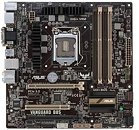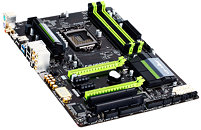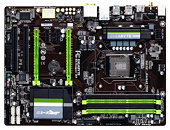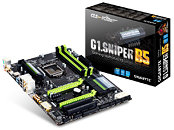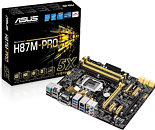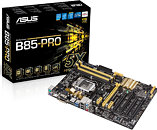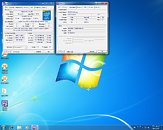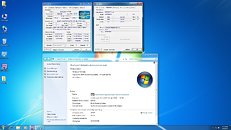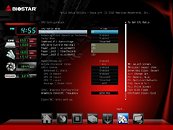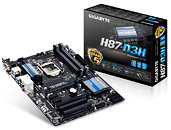
ASUS Announces TUF Vanguard B85 Motherboard
ASUS launched its first The Ultimate Force (TUF) series motherboard based on a mid-range chipset by Intel, the TUF Vanguard B85. Designed for gamers who don't overclock their CPUs, and for businesses that change their IT infrastructure every decade, this motherboard is a tight ship. To begin with, it uses a simple 4-phase VRM to condition power for the CPU, but that VRM consists of high-grade components, and is cooled by heatsinks. The board draws power from a combination of 24-pin ATX and 8-pin EPS connectors. The LGA1150 socket is wired to four DDR3 DIMM slots, supporting up to 32 GB of dual-channel memory; and one PCI-Express 3.0 x16 slot. A second PCI-Express x16 slot is electrical gen 2.0 x4, wired to the PCH. One each of PCI-Express 2.0 x1, and legacy PCI, make up the rest of the expansion area.
Storage connectivity on the TUF Vanguard B85 includes four SATA 6 Gb/s, and two SATA 3 Gb/s, all of which are assigned as internal ports. Display connectivity includes one each of dual-link DVI, HDMI, D-Sub, and DisplayPort. The board offers a total of six USB 3.0 ports, four on the rear panel, and two via internal headers. 8-channel HD audio, gigabit Ethernet, PS/2 mouse/keyboard combi-plug, and a number of USB 2.0/1.1 ports, complete the connectivity package. The board feature all the TUF military-grade durability paraphernalia, including the Thermal Radar feature from the TUF Sabertooth series. Expect this one to go for about $110.
Storage connectivity on the TUF Vanguard B85 includes four SATA 6 Gb/s, and two SATA 3 Gb/s, all of which are assigned as internal ports. Display connectivity includes one each of dual-link DVI, HDMI, D-Sub, and DisplayPort. The board offers a total of six USB 3.0 ports, four on the rear panel, and two via internal headers. 8-channel HD audio, gigabit Ethernet, PS/2 mouse/keyboard combi-plug, and a number of USB 2.0/1.1 ports, complete the connectivity package. The board feature all the TUF military-grade durability paraphernalia, including the Thermal Radar feature from the TUF Sabertooth series. Expect this one to go for about $110.

